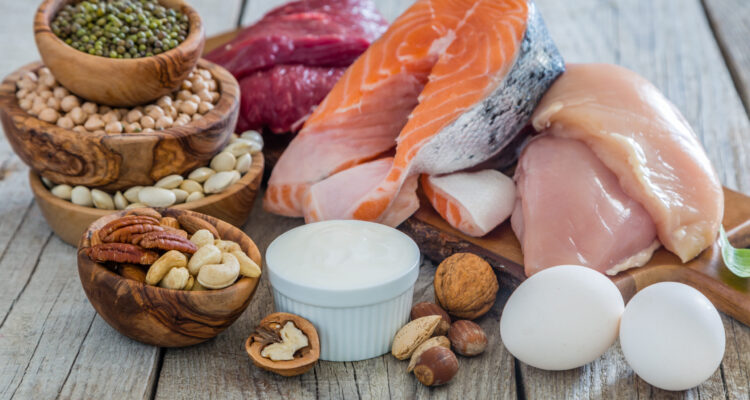
As with many things the more we learn about diet and nutrition the more we realize how much we really don’t know. When any “expert” or “guru” says they know the best way for you to eat please change the channel or turn the page quick. What is obvious is that there is no optimal diet that works for everyone AND there is no weight loss diet that is superior to all the rest. Even if there are many perpetuated myths about food that need to be broken, we have learned some truths about nutrition to make some healthy general recommendations. With that let’s get started.
Diets for weight loss
With literally hundreds of weight loss diets, which one is the best at dropping pounds? Properly controlled research shows that at 3, 6 or 12-months intervals there is NOT one superior weight loss diet. Whether it is low-fat, low carb, South Beach, Atkins, low glycemic, Paleo, Keto, vegan or a balanced type diet, when cutting calories equally they all have comparable results. Most plans are set up to reduce caloric intake 500-1000 daily with the goal to lose 1-2 pounds per week for a sustained period. With all calorie reduced diets the weight comes off faster in the beginning then slows. This is especially true with the low carb diets like Atkins, South Beach, Paleo and Keto. Incorporating exercise, especially resistance type, can help hold off the dreaded plateau effect longer because it helps maintain lean body mass and support a higher metabolic rate, but eventually further caloric reduction is needed to continue dropping pounds.
If they are all the same which is the healthiest weight loss diet? IF YOU LOSE WEIGHT, they all reduce insulin resistance, lower blood pressure, improve cholesterol profiles and reduce cardiovascular risk. It is the loss of weight that produces most of the health benefit regardless of diet type. As for cholesterol dieting, low carb diets tend to increase the good cholesterol (HDL) with minimal LDL reduction while low fat and vegan diets tend to lower the bad cholesterol (LDL) but have little effect on the good cholesterol.
How do you select? Pick one that is practical and maintainable for your lifestyle. In other words, it is best if you like the food selections, the food is not too expensive, and the rules are not overly onerous making the diet unsustainable for more than a few weeks or months.
What about the new kid on the block – Interval fasting? Interval diets are either fasting two days a week (one single 500 calorie meal or less on fasting days) OR limiting all caloric consumption (food/beverages) to a 6 to 8-hour window per day. New research does show that it is comparable to other diets in weight loss and health benefits with some enhanced reduction in insulin resistance and possibly some benefit toward increasing longevity. More research needs to be done to see if this is true and this type of dieting is not for everyone because low glucose levels during fasting may lead to irritability, fatigue and difficulty concentrating. However, these side effects usually lessen or go away after 2-6 weeks on the diet.
Diets for healthy eating
Most research on health through diet focus on the DASH (Dietary Approaches to Stop Hypertension), the Mediterranean diet and a plant-based diet like the Ornish diet or the vegetarian diet. These diets have good evidence that they reduce cardiovascular disease and are associated with longer lives. Both the Mediterranean and vegetarian diet help prevent diabetes and treat obesity. In addition, the Mediterranean diet also has good evidence that it decreases cancer incidence and it is a recommended ADA diet for diabetics.
The common link with these diets is the reduction of processed food. Processed foods are higher in saturated fat and salt than unprocessed foods. So, a goal to eat healthier should focus on replacing the processed foods in your diet with whole or less processed options.
Carbohydrates
Fruits/Vegetables: Choose whole fruits and vegetables that are lower in glycemic index (the lower the rating the slower the carbohydrate is metabolized and the slower and smaller the insulin response). Avoid drinking juices which speed digestion and increase the insulin response to the rapid rise in blood sugar. Also, the more colorful the vegetable, the higher in vitamins, micronutrients and antioxidants. Diets with higher amounts of whole fruit and vegetables are associated with lower rates of cardiovascular disease and certain types of cancer like lung and stomach cancer.
Grains: Choose whole grains. The more refined, or processed, the grain the higher the glycemic index rating. White flour is more refined than wheat flour as is white rice more processed than brown rice. The more processed the grain the greater potential for an inflammatory response in the body which is linked with higher rates of heart disease, diabetes and difficulty losing weight. Whole grains also contain more fiber, protein and vitamins than their refined counterparts.
Fats/Oils
The three types of fat are saturated, polyunsaturated and monounsaturated. Saturated (solid at room temperature like animal fat and butter) and trans fats (a type of polyunsaturated fat that is now banned in the US) are associated with an increased risk of cardiovascular disease as opposed to polyunsaturated and monounsaturated that are associated with a decrease. Omega-6 and -3 fatty acids are polyunsaturated oils. A higher omega-6 to omega-3 ratio can increase risks of inflammation, obesity and cancer. Corn and vegetable oils are higher in omega-6 fatty acids while fish, nuts and canola oils are higher in omega-3. Diets richer in omega-3 and monounsaturated fats can lower the risk of inflammatory diseases and cardiovascular disease. Common monounsaturated oils are olive, nut and avocado.
Protein
Plant based sources are healthier in general than protein from animal products. Diets higher in legume and tree nut proteins are associated with improvement in lipid levels and decreasing cardiovascular disease. However, when it comes to a plant-based diet it is more difficult to get a complete mix and adequate amount of protein unless dairy and/or eggs are part of the diet. When it comes to animal products red and processed meats are associated with inflammation and heart disease risk BUT it is more controversial with other animal sources. Thus, when choosing for health opt for fish, dairy, egg and fowl sources for your animal protein fix.
Milk
Maybe not as good as we are led to believe. 70% of the world’s population does not have the gene to make lactase to fully digest milk. Whites and Hispanics are more likely to tolerate dairy more so than Asians, Middle Easterners and Black populations. Dairy is a significant source of added sugar and saturated fat which can be detrimental. So, the benefit must be the calcium content for the bones, right? Maybe not. Contrary to common belief, high intake of milk and calcium is linked with an increases risk of hip fracture and all-cause mortality. When it comes to calcium better dietary sources are greens, nuts and legumes. If you go with milk it maybe better to choose low fat or skim options and limit it to the cereal bowl. Better yet – buy a nut-based milk like almond milk which is lower in calories and has omega-3’s with no saturated fat.
Eggs
A two-egg breakfast was the gold standard until it wasn’t because of the cholesterol content. However, it is not all about the cholesterol and up to 12 eggs a week even for diabetics does not increase cardiovascular risk.[i] What’s up? Yes, eggs have a lot of cholesterol BUT they are low in saturated fat and have omega-3 fatty acids (and there are new egg options that are omega-3 enriched). Eggs are the best source of quality protein and a powerhouse of macro- and micronutrients. Eggs are rich in B12, Iron, potassium and carotenoids like lutein and zeaxanthin for eye health and choline for brain health. Pound for pound eggs might be the reigning champ. Think about it – they are designed to provide the essentials for a growing chick fetus. McDonald’s did their homework with the Egg McMuffin breakfast – lean protein, carbs and dairy. If they only went with a whole grain English muffin and low-fat cheddar cheese it would be a nutritional masterpiece!
Salt
Salt is overhyped as far as health is concerned. Unless you suffer from congestive heart failure or are one of the few whose blood pressure is salt-sensitive then you can ignore it – sort of. Low salt diets were the recommendation for years but both low and high salt diet carry some health risk. BUT when it comes to high salt diets is it really the salt? Or is it the processed food that high is saturated fat and happens to also be higher in salt? Hmmm… Bottom line don’t add salt to dishes and limit processed foods – AND you can ignore the salt content.
Caffeine
For years the “health experts” have totally missed the boat on caffeine claiming it is bad for you. However, turns out it may really be good for you. In fact, we know it enhances mobilization of fatty acids for energy during bouts of aerobic exercise. It also has no detrimental health effect unless you are sensitive to its side effects (i.e. racy heart rate and jitteriness), have caffeine-related migraines or your blood pressure response to caffeine is out of the normal. For most, caffeine’s effect on blood pressure is very temporary and only really occurs when a significant change is made to daily intake and not a permanent rise in pressure. Even if you have high blood pressure, it will return to a prior baseline after a few days to a week without any deleterious health risk. High caffeine products like dark chocolate and black coffee are associated with a reduction in cardiovascular risk. Bottom line, if you consume caffeine, you can go bold provided that, you avoid sugary beverages and hold the cream.
In conclusion, nutrition is still a puzzle. However, given the relative knowns about nutrition adapting your diet with a Mediterranean flavor seems to be the way to go. Disclaimer: the facts change fast and when the facts change you have the right to change your diet.
Main Source: Diets for Health: Goals and Guidelines; Amy Locke, MD, et. al. Am Fam Physician. 2018; 97(11):721-728
[i] Effect of a high-egg diet on cardiometabolic risk factors in people with type 2 diabetes: the Diabetes and Egg (DIABEGG) Study—randomized weight-loss and follow-up phase; Nicholas R Fuller, et. al. The American Journal of Clinical Nutrition, Volume 107, Issue 6, June 2018, Pages 921–931



